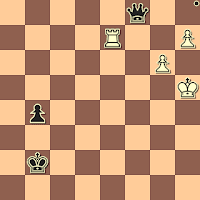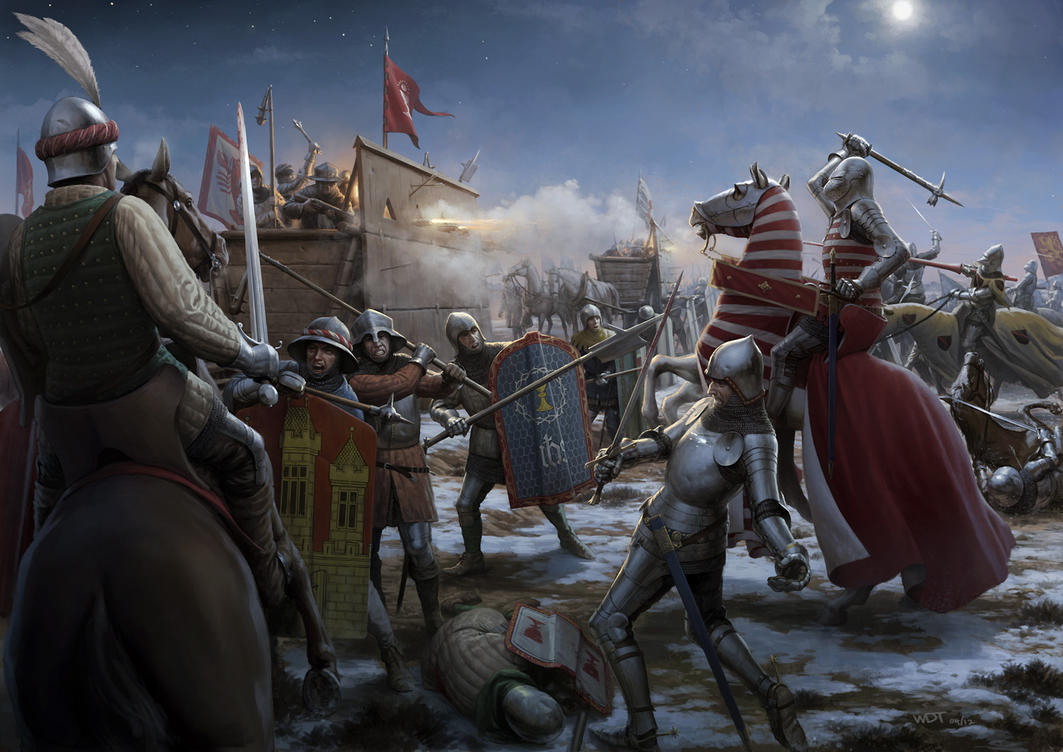Torneo tematico GaJero00-A 2009
1 2 3 4 5 6 7 8
1 Rybka 2.3.2a (2 CPU) ** 11 01 01 1½ 11 11 11 11.5/14
2 WB Nimzo 2000b 00 ** 01 11 1½ 11 ½1 11 10.0/14
3 SOS 5.1 10 10 ** 00 11 11 11 ½1 9.5/14
4 Comet B48 10 00 11 ** 10 01 11 11 9.0/14
5 Zarkov 4.70 0½ 0½ 00 01 ** 1½ 01 11 6.5/14
6 DrunkenMaster 1.2 00 00 00 10 0½ ** 10 11 4.5/14
7 La Dame Blanche 2.0c 00 ½0 00 00 10 01 ** 01 3.5/14
8 Demon 1.0 00 00 ½0 00 00 00 10 ** 1.5/14
The crosstable above is for the Jerome Gambit thematic chess tournament presented at the Scacchi64.com website, referred to in an earlier post (see "The Macbeth Attack").
As can be seen, 56 games games were played (with an average of 51 moves) with White scoring 31%.
This compares to the 12,478 games in The Database with the 1.e4 e5 2.Nf3 Nc6 3.Bc4 Bc5 4.Bxf7+ move order, with White scoring 45%, in games averaging 31 moves.
The difference in performance for White between the tournament and the larger collection can be in part attributed to sampling bias (players tend to more often publish their wins with their favorite openings, rather than their losses, and these could be over-represented in The Database) but the fact that about 80% of the relevant Jerome Gambit games in The Database are drawn from 17 years of games from the Free Internet Chess Server (FICS) - regardless of outcome - mitigates against that. It is likely that computers defend better than average club players when it comes to facing "refuted" opening play.
The difference in average game length between the two collections can be attributed to computer engines tendency to play to mate. It is interesting to point out several long games from the thematic tournament
 |
| WB Nimzo 2000b - La Dame Blanche 2.0c |
drawn after 109 moves, via the 50-move rule; little progress can be expected in this Bishops-of-opposite-colors endgame anyhow
 |
| Zarkov 4.70 - DrunkenMaster 1.2 |
drawn after 93 moves, again via the 50 move rule
Some of the endgames were quite hard-fought, however. Consider the following position, from Rybka 2.3.2a - Zarkov 4.70, after 62.Kg7
There is a lot going on, even for a computer chess engine to grasp. Black wins by giving up his Knight and bringing his Rook back to exchange itself for White's advanced passed pawn (!) with 62...Rd2! 63.Kxf7 Rd7+ 64.Kg6 Rxh7 65.Kxh7 b4 and Black's passers will produce a winning Queen.
Instead, the game continued
62...Rh2!?
A very direct move and sacrifice that, unfortunately, serves only to draw.
63.Rxh2 a1=Q 64.Kxf7 Qa7+
Black must check the enemy King and hold the enemy pawns back, hoping for repetition.
65.Kg6 Qb6+ 66.Kh5 Qd4 67.Rh3+
White, too, must worry about the enemy passed pawn - as well as the fact that Black has Q vs R.
67...Kc2 68.g5 b4 69.Rh2+ Kc3 70.Rh3+ Kb2 71.Rd3
Nice. If Black now takes the Rook, White Queens his h-pawn. Either way, however, the game remains drawn.
71...Qh8 72.g6 Qf6 73.Rg3 Qg7 74.Re3 Qf8 75.Re7
The same idea as above: taking the Rook leads to pawn promotion (and a draw).
75...Qf5+ 76.Kh6 Qf8+ 77.Kh5 Qh8 78.Kh6 Qd8 79.g7
It looks like Rybka will finally break through, but Zarkov has the half-point in hand.
79...Qd6+ 80.Kh5 Qh2+ 81.Kg6 Qc2+ 82.Kh6 Qh2+ 83.Kg6 Qc2+ 84.Kh6 Qh2+ 85.Kg6 drawn






























